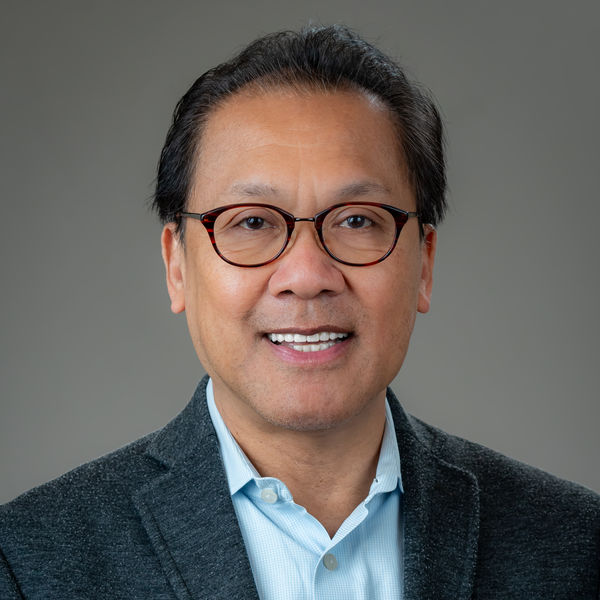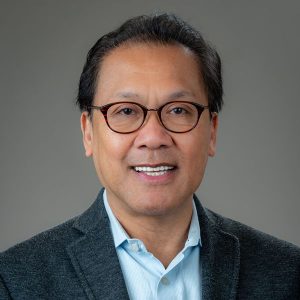How Can AI Accelerate the Nation-Building and Modernization Process? More Questions than Answers

How Can AI Accelerate the Nation-
Building and Modernization Process? M
ore Questions than Answers
A Presentation by Liberato C. Bautista[1]
at the
XXIV Infopoverty World Conference under the auspices of the Observatory for
Digital Communications (OCCAM) and collaborators
11 April 2025 | CR11 | UNHQ New York
Excellencies, ladies and gentlemen,
Thank you, Mr. Celik, Chair, for the kind introduction.
- I want to once again thank Pierpaolo Saporito, president of OCCAM and the intellectual architect behind the Infopoverty Conferences, for including me and the Conference of NGOs in Consultative Relationship with the UN (CoNGO) in this year’s Infopoverty World Conference. This conference is now in its twenty-fourth edition, and this marks my eleventh time participating.
- There is a saying: “Constant repetition carries conviction.” Pierpaolo’s emphasis on a recurring theme—the eradication of poverty through the mediation of information and communications technology, including artificial intelligence—embodies the notion that “constant repetition” conveys conviction.
- This year’s Infopoverty conference consistently emphasizes multilateral cooperation: implementing the UN Agenda 2030 and achieving the Sustainable Development Goals. These goals were prominently reaffirmed at the Summit of the Future in September 2024, where the Pact for the Future and its two annexes, including the Global Digital Compact, highlighted the importance of interdependence and multilateral collaboration, as stressed in the opening and first sessions of the conference.
- My intervention last year was titled “Artificial and Yet Real: AI from Warfare to Welfare.” The ideas I shared then, and still believe today, focus on how AI is mainly driven by market interests rather than welfare goals. Its use in defense and warfare tends to surpass its applications in any other human activity. Given this reality, how can digital governance work toward digital equity, making technology serve all of humanity and the planet?
- AI and its related ICTs must be rooted in the multilateral values of human dignity, human rights, peace and security, and sustainable development to close social and economic gaps, including the digital divide. This highlights the vital role of digital governance on the multilateral agenda.
- That multilateral agenda must address the digital divide to ensure that the digitization of information and the digitalization of knowledge contribute to achieving digital justice, which is part of the broader cause of social justice. In turn, digital justice contributes to the larger cause of social and economic justice. If done right, AI may yet bridge the development financing gap at a time when official development aid (ODA) is declining.
- The eleventh annual symposium on the role of religion and faith-based organizations in international affairs took place last week, on April 3, 2025. This event was organized in partnership with the UN Inter-Agency Task Force on Religion and Development.
- This panel’s theme is similar to the one I moderated at last week’s eleventh annual symposium on the role of religion in international affairs. Combined with our panel’s theme, both phrased as questions, it states, “The AI Genie is Out of the Bottle: Can Digital Governance Keep Up? How can AI accelerate the nation-building and modernization process?”
- Instead of just answering the question, let me pose more similar questions. This technology will undoubtedly shape the future world order and geopolitics, influencing democratic participation and decision-making if we can predict its effects. Such developments will greatly impact nation-building. Likewise, those without the resources to access and engage with this technology will probably be left behind in the modernization process envisioned by this panel.
- In her 2021 Nobel Peace Prize acceptance speech, my fellow countrywoman Maria Ressa said: “Without facts, you can’t have truth. Without truth, you can’t have trust. Without these three, we have no shared reality, no rule of law, no democracy.” So, will AI be a vehicle, a medium, or a harbinger, if you will, of facts, truth, and trust, or a peddler of their opposites, such as misinformation and disinformation? Can AI serve democratic purposes? Will it help reverse or worsen the shrinking public space for democratic discussion and involvement?
- So, how can we keep up with this rapidly advancing and innovative technology? Is drafting a UN Convention on AI a viable option? AI is evolving quickly and becoming expensive for struggling economies to support. Without regulation, it risks leaving some people behind, worsening existing social, digital, and gender gaps and inequalities, and jeopardizing any efforts for nation-building and modernization.
- Do we have the necessary tools to start shaping digital governance? Are our efforts aligned with the commitment made at the World Summit on the Information Society in Tunis in 2005, which stated, “We reaffirm our desire and commitment to building a people-centered, inclusive, and development-oriented Information Society, grounded in the purposes and principles of the Charter of the United Nations, international law, and multilateralism, fully respecting and upholding the Universal Declaration of Human Rights…?”, and more?
- Consider the remarks made by UN Secretary-General Antonio Guterres to the UN Security Council about Artificial Intelligence, dated July 18, 2023:
“We need a race to develop AI for good. To develop AI that is reliable and safe and that can end poverty, banish hunger, cure cancer, and supercharge climate action. AI that propels us towards the Sustainable Development Goals. That is the race we need, and that is a race that is possible and achievable…”
But the SG also warned: “AI tools can also be used by those with malicious intent. AI models can help people to harm themselves and each other at a massive scale…I urge you to join forces and build trust for peace and security.”
- How far along are we in developing the multilateral digital regime following the UNSG’s remarks and the landmark resolution adopted on March 21, 2024, by the UN General Assembly titled “Seizing the Opportunities of Safe, Secure, and Trustworthy Artificial Intelligence Systems for Sustainable Development”?
- From the discussions at last week’s symposium, I learned that AI governance has progressed much more rapidly than other digital technologies. This shows that values and assumptions are already shaping how AI is managed.
- Key concepts in AI governance remain unresolved, and there is a significant lack of representation from the global majority. Governance mechanisms must acknowledge cultural differences in values, requiring the inclusion of diverse voices in policymaking.
- Human rights establish a common language and provide a solid foundation for governance, improving the interoperability of various approaches. We commend the UN for creating bodies that address the need for increased global participation in AI governance. However, we hope to see more clarity and coherence across various governance initiatives. Past digital policymaking efforts became disjointed and hard to navigate, raising concerns that this problem could happen again.
- A strong moral compass is essential for guiding digital communication toward an ethical true north, defined by respect for peace and fundamental values such as freedom, equality, solidarity, tolerance, shared responsibility, and respect for nature. Thanks to OCCAM and the Infopoverty Conference, this moral compass effectively reflects these values.
_______________________________________
CoNGO INTERNATIONAL SECRETARIAT
CoNGO New York | Office of the President, 777 UN Plaza, Suite 7C, New York, New York 10017 | T: +1 212 973 1701 | E: president@ngocongo.org
CoNGO Geneva | PostBox 50 | 1211 Geneva 20 , Switzerland | T: +41 22 301 1000 | F: +41 22 301 2000 | E: firstvp@ngocongo.org
CoNGO Vienna | c/o Dr. Martina Gredler, Obere Donaustrasse 43/1/15 A-1020 Vienna, Austria | E: svp@ngocongo.org
www.ngocongo.org
[1] Liberato Bautista is the President of the Conference of NGOs in Consultative Relationship with the United Nations (CoNGO) and the Main Representative to the UN of the General Board of Church and Society of The United Methodist Church. The Infopoverty World Conference is held annually between New York (USA) and Milan (Italy) by OCCAM (Observatory on Digital Communication). This paper was presented in the twenty-fourth edition of the conference on April 11, 2025 held at the UN Headquarters. See link for the programme agenda.


